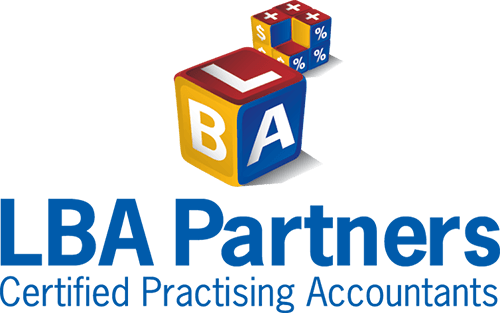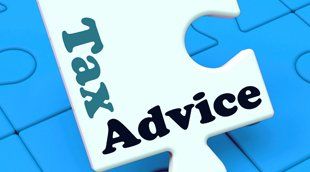P r a c t i c e U p d a t e
September 2010
ATO crackdown on cash economy
As part of the ATO's approach to managing tax risks, this financial year they will send around 110,000 letters to taxpayers who may be participating in the cash economy.
The majority of letters will be sent to businesses reporting outside the 'small business benchmarks' for their industry.
Editor: The ATO claims that their small business benchmarks (which they have developed for over 100 industries) help them to identify businesses that may be avoiding their tax obligations by not reporting some or all of their income.
The letters inform taxpayers that they have been identified as a result of one of the ATO's cash economy indicators, and will encourage them to review their records to ensure they have correctly reported all income, especially cash transactions.
In addition, the ATO warns that businesses that fall within the benchmarks should not assume that they are safe from an ATO audit or review.
The benchmarks complement the ATO’s recently expanded data matching program, and they also use other sources of information to identify those not meeting their tax obligations, including information from other government agencies, trade suppliers, tax returns and activity statements and allegations of tax evasion sourced from the community.
Editor: If you receive a letter from the ATO, contact us so that we can assist you to review your records, returns and income, and to advise the ATO if a mistake has been made.
Pension drawdown relief extended to the 2011 year
Editor: When a super fund starts paying a pension, it must pay the member a minimum percentage of their pension balance each year (and that minimum percentage increases as the pensioner gets older).
When the Global Financial Crisis hit a few years ago, recognising that some super funds may have cashflow issues, the Government allowed super funds paying out the most common types of pensions to only pay half of what they would otherwise pay in the 2009 and 2010 income years.
As announced by the Treasurer on 30 June 2010, the measure allowing a super fund to apply only half of the relevant percentage when paying out certain pensions has been extended to the 2011 year:
"As in the past two years, the drawdown relief will be in the form of a 50% reduction in the minimum payment amounts for account-based, allocated and market-linked pensions."
This change has been incorporated in the relevant regulations, and is therefore applicable to the 2011 year, notwithstanding the outcome of the Federal election.
Online-selling data matching
The ATO has obtained data from eBay Australia and Trading Post Australia to assess the level of taxation compliance of individuals and businesses that sell goods or services online.
The data identifies members of online selling sites who are involved in selling goods and services of a total value greater than $20,000 in any of the past three financial years: 2007/08, 2008/09 and 2009/10.
This data is electronically matched with the ATO's own data, and the ATO will contact individuals and businesses that they identify as being at risk of running part of their business off the books, or in other ways not reporting all their income, to encourage them to make a voluntary disclosure of any under reported amounts.
'Hazards of property for SMSFs'
The ATO has warned that an SMSF holding property could be sued if someone is injured or dies because of faults in that property.
The ATO provided a recent example of a property owner being held liable for the death of an electrician on their premises when replacing an old solar hot water system with a new one.
Therefore, if trustees own property in their SMSF, they should make sure they are aware, to the best of their ability, of any hazards on their property and, if any hazards do exist, they should have them fixed.
They should also consider having an insurance policy in the SMSF to cover the property and public liability.
Where the property was acquired with a limited recourse borrowing under with new borrowing laws, the ATO recommends that the trustees speak with their advisors on requirements for holding any insurance.
Resident minors' effective 2010/11 tax-free threshold
The increase in the low-income tax offset to $1,500 for 2010/11 (from $1,350 in 2009/10) effectively means that $3,333 can be distributed to minors tax-free in the 2010/11 year.
Ordinarily, and excluding the offset, once a minor's income exceeds $1,307, the entire amount is taxed at 45%.
However, applying the low-income tax offset of $1,500 means that no income tax will be payable until the minor's taxable income exceeds $3,333, i.e., $1,500 divided by 0.45 = $3,333.
Incorrect amounts of RESCs on payment summaries
The ATO has advised that some employers have been incorrectly including compulsory super amounts as reportable employer super contributions (RESCs) on their employees’ payment summaries for the 2009/10 income year, such as:
- super guarantee contributions; and
- industrial agreement (award) super contributions.
RESCs should only include additional super contributions made by an employer, for example, super contributions made on behalf of an employee under a salary sacrifice arrangement.
Employees
Employees who have compulsory super amounts incorrectly included on their payment summaries should notify their employer to provide them with an amended payment summary.
Editor: Please contact us if you think your employer may have included incorrect amounts on your payment summary.
Employers
Employers that have issued payment summaries to their employees that incorrectly include compulsory super amounts should notify any affected employees about the error and issue them with amended payment summaries.
If these employers have already lodged their payment summary annual report with the ATO, they will need to lodge an amended annual report.
Medicare levy surcharge thresholds
Editor: The Medicare levy surcharge of 1% is imposed on top of the 1.5% Medicare Levy where a taxpayer, their spouse and dependants do not have private patient hospital cover and the taxpayer's 'income for surcharge purposes' (which includes reportable fringe benefits, reportable superannuation contributions and total net investment losses) exceeds the relevant threshold:
The Medicare levy surcharge income thresholds have been increased for the 2010/11 income year as follows:
- Single surcharge threshold – $77,000 (up from $73,000 for 2009/10); and
- Family surcharge threshold – $154,000 (up from $146,000 for 2009/10).
Please Note: Many of the comments in this publication are general in nature and anyone intending to apply the information to practical circumstances should seek professional advice to independently verify their interpretation and the information's applicability to their particular circumstances.
Management Consulting
We have the know-how and experience to offer advice that helps you run your business more effectively.
Self-Managed Superannuation Funds
At LBA Partners we provide the professional advice you need to manage your own fund and greatly simplify the process for you.



